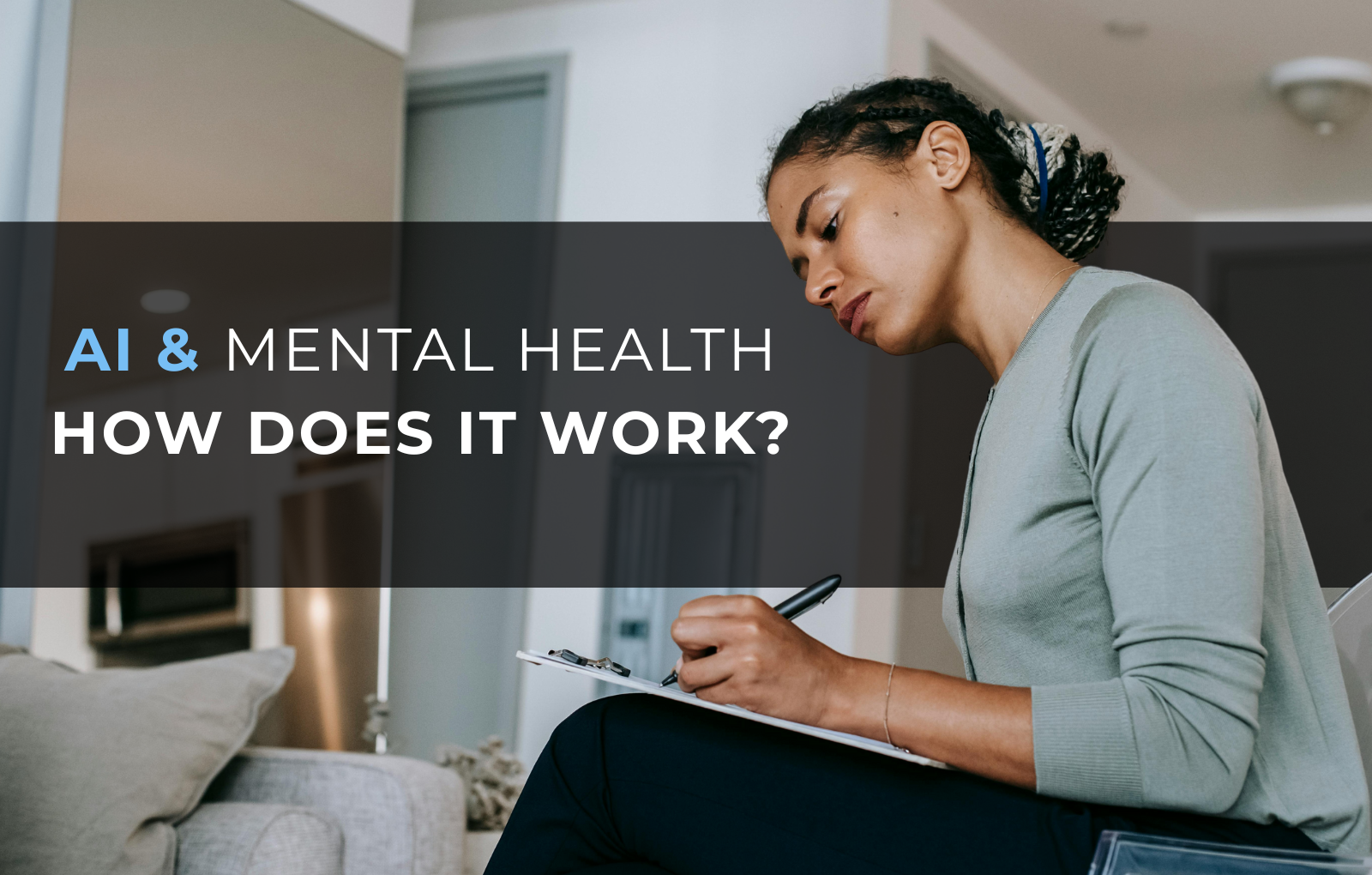
The term "Artificial Intelligence" (AI) might conjure images of science fiction, but in the world of mental health, it has become a powerful and practical tool. Artificial intelligence and mental health are no longer separate fields; they are collaborating to create a more efficient, accessible, and patient-centered system.
It’s crucial to understand that AI is not a replacement for human medical professionals. Instead, it acts as a vital partner, augmenting human capabilities and providing a new layer of support that is changing how we approach health and wellness.
Pocket Mate’s mission is to facilitate the partnership of artificial intelligence in mental health support, offering the masses an affordable option and helping professionals reach their goals more efficiently.
At its core, AI works by using complex computer programs to recognize patterns and make predictions from a massive amount of data. This process, known as machine learning, is what allows AI to "learn" and perform tasks that would typically require human intelligence.
Think of it like this: If you wanted to teach a computer to recognize a cat, you wouldn't just give it a list of rules. Instead, you would feed it thousands of pictures of cats, dogs, birds, and other animals, to distinguish what a cat is versus other animals, just as you would show an infant and help them associate the word “cat” with the right animal. Over time, the AI would learn to identify the subtle patterns: the shape of the ears, the whiskers, the tail, and everything that makes a cat a cat. The more data it receives, the better it gets at recognizing a cat.
In mental health, AI applies this same principle. It's not magic, but a series of algorithms that can analyze data from a wide range of sources. For example, it can analyze thousands of medical records, research papers, or patient conversations to understand language, predict outcomes, or suggest a course of action. This ability to learn from and process vast amounts of information is what makes AI such a powerful tool in medicine, helping to augment the skills of healthcare professionals and improve the quality of care.
The collaboration between artificial intelligence and mental healthcare is about making the medical world smarter, faster, and more accessible. It’s important to understand that AI isn't meant to replace psychiatrists, therapists, and psychologists. Instead, it’s meant to act as a powerful partner, augmenting human capabilities and providing a new layer of support.
So, how exactly does this partnership work?
AI functions by processing huge amounts of medical data. Just like the cat example mentioned above, the AI learns from things like medical records, back-and-forth conversations, and medical images. The AI then finds patterns or insights that would be difficult for humans to discover on their own or at a fast enough speed. This ability allows AI to transform mental health in a few key ways.
The most direct and personal collaboration between artificial intelligence and mental health for patients is through AI chatbots for mental health, such as AI Listener.
These chatbots are a crucial link in the chain of care, offering support that is always available and providing access to basic self-help to large numbers of individuals who may not have been able to afford it previously.
AI chatbots provide a variety of benefits for patients:
While there are many benefits to artificial intelligence in mental health, there are some drawbacks to it as well.
Confirmation bias is a large worry in the space of mental health care. Artificial intelligence as we currently know it. Has a confirmation bias that is meant to encourage people and agree with them no matter what. This can lead people with mental illnesses down a dark path of self-harm that could potentially be fatal. Of course, this is a huge concern for healthcare professionals. However, many reputable AI chatbots include safeguards to prevent issues like this from happening.
At the end of the day, it's crucial to distinguish between reputable mental health chatbots and general-purpose AI tools. Using a general-purpose chatbot for mental health support may not be the best idea because it lacks the necessary safeguards.
You wouldn't go to a veterinarian for open-heart surgery. While veterinarians have a medical background, only cardiothoracic surgeons have the specific training, tools, and protocols in place for such a sensitive procedure.
It’s the same for AI chatbots. Dedicated mental health apps are built with strict safety protocols, tools, and with specific training modules designed for the specific purpose of mental health support, whereas a general-purpose AI does not have the protocols in place for these sensitivities.
Navigating the world of artificial intelligence in mental health requires a shared sense of responsibility from all parties involved: the companies that create the tools, the clinicians who recommend them, and the patients who use them. When all three work together, AI can be a powerful force for good.
The collaboration between artificial intelligence and mental health is about more than just technology; it's about a smarter, more efficient way to deliver care. By leveraging AI to augment human capabilities, we can improve the way care is provided to patients and make a positive impact on the lives of millions by making health support more accessible and personal than ever before.
We believe that safely guiding artificial intelligence in mental health is possible. That is why we created AI Listener, a HIPAA-compliant mental health support companion that provides patients a listening ear when they need one.
At Pocket Mate, our mission is to help shape a future where AI is used for good.
**NOTE: AI Listener is not a crisis center. If you need immediate support, please contact the National Suicide Crisis Prevention Hotline: Call 988, The National Suicide Prevention Lifeline: 800-273-8255, Crisis Text Line: 741741
Copyright © 2025 Pocket Mate AI TM